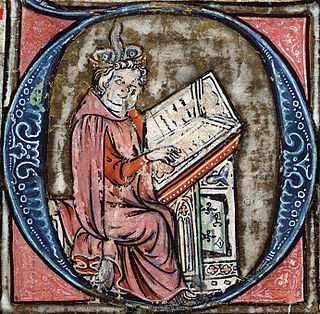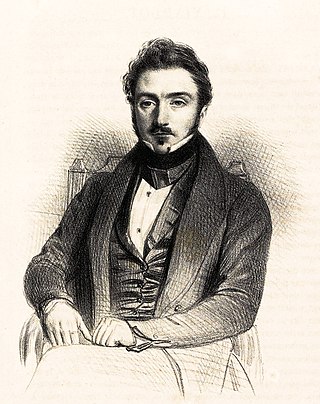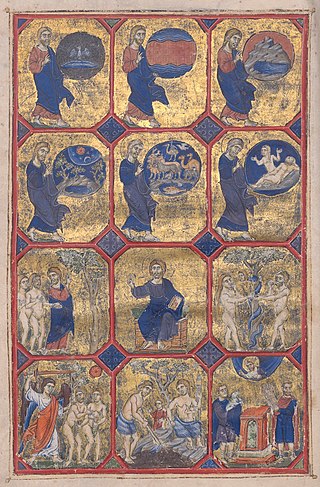Related Research Articles

Jean Pierre Moulin was a French civil servant and resistant who served as the first President of the National Council of the Resistance during World War II from 27 May 1943 until his death less than two months later.

Lucie-Simplice-Camille-Benoît Desmoulins was a French journalist and politician who played an important role in the French Revolution. Desmoulins was tried and executed alongside Georges Danton when the Committee of Public Safety reacted against Dantonist opposition. He was a schoolmate of Maximilien Robespierre and a close friend and political ally of Danton, who were both influential figures in the French Revolution. He is best known for criticizing the repressive measures of the Reign of Terror and pleading for clemency in Le Vieux Cordelier (1793-1794), as well as for calling the people to arms before the Palais Royal on July 12, 1789, which helped incite the storming of the Bastille.

The Society of the Friends of the Rights of Man and of the Citizen, mainly known as Cordeliers Club, was a populist political club during the French Revolution from 1790 to 1794, when the Reign of Terror ended and the Thermidorian Reaction began.

Jacob van Maerlant was a Flemish poet of the 13th century and one of the most important Middle Dutch authors during the Middle Ages.
Petrus Comestor, also called Pierre le Mangeur, was a twelfth-century French theological writer and university teacher.
Peter of Poitiers was a French scholastic theologian, born at Poitiers or in its neighbourhood about 1130. He died in Paris, probably in 1215.

Pierre Du Moulin was a Huguenot minister in France who also resided in England for some years.

The Bible Historiale was the predominant medieval translation of the Bible into French. It translates from the Latin Vulgate significant portions from the Bible accompanied by selections from the Historia Scholastica by Peter Comestor, a literal-historical commentary that summarizes and interprets episodes from the historical books of the Bible and situates them chronologically with respect to events from pagan history and mythology.
Jean-Pierre-Paulin Martin, often referred to as Abbé Paulin Martin, or simply Abbé Martin or Paulin Martin, was a French Catholic Biblical scholar.
Bible translations into French date back to the Medieval era. After a number of French Bible translations in the Middle Ages, the first printed translation of the Bible into French was the work of the French theologian Jacques Lefèvre d'Étaples in 1530 in Antwerp. This was substantially revised and improved in 1535 by Pierre Robert Olivétan. This Bible, in turn, became the basis of the first French Catholic Bible, published at Leuven in 1550, the work of Nicholas de Leuze and François de Larben. See also the Douay–Rheims Bible whose New Testament was published in 1582, and Old Testament, in two volumes, in 1609 and 1610 by the University of Douai. Finally, the Bible de Port-Royal, prepared by Antoine Lemaistre and his brother Louis Isaac Lemaistre, finished in 1695, achieved broad acceptance among both Catholics and Protestants. Jean-Frédéric Ostervald's version (1744) also enjoyed widespread popularity.

Louis-Isaac Lemaistre de Sacy, a priest of Port-Royal, was a theologian and French humanist. He is best known for his translation of the Bible, the most widespread French Bible in the 18th century, also known as the Bible de Port-Royal.
Stjórn is the name given to a collection of Old Norse translations of Old Testament historical material dating from the 14th century, which together cover Jewish history from Genesis through to II Kings. Despite the collective title, Stjórn is not a homogeneous work. Rather, it consists of three separate works which vary in date and context, labelled Stjórn I, II and III by scholar I.J. Kirby.

Antoine Vérard was a late 15th-century and early 16th-century French publisher, bookmaker and bookseller.

Bible translations in the Middle Ages discussions are rare in contrast to Late Antiquity, when the Bibles available to most Christians were in the local vernacular. In a process seen in many other religions, as languages changed, and in Western Europe languages with no tradition of being written down became dominant, the prevailing vernacular translations remained in place, despite gradually becoming sacred languages, incomprehensible to the majority of the population in many places. In Western Europe, the Latin Vulgate, itself originally a translation into the vernacular, was the standard text of the Bible, and full or partial translations into a vernacular language were uncommon until the Late Middle Ages and the Early Modern Period.
Charles Des Moulins, full name Charles Robert Alexandre Des Moulins was a French naturalist, a botanist and malacologist.
Desmoulins, de Moulins, des Moulins or Demoulin may refer to:

The Pseudo-Jacquemart was an anonymous master illuminator active in Paris and Bourges between 1380 and 1415. He owed his name to his close collaboration with painter Jacquemart de Hesdin.

Louis Viardot was a French writer, art historian, art critic, theatrical figure, and translator. As a translator, he mostly contributed to the development of Russian and Spanish literature in France. He was the older brother of the artist Léon Viardot (1805–1900).
Since Peter Waldo's Franco-Provençal translation of the New Testament in the late 1170s, and Guyart des Moulins' Bible Historiale manuscripts of the Late Middle Ages, there have been innumerable vernacular translations of the scriptures on the European continent, greatly aided and catalysed by the development of the printing press, first invented by Johannes Gutenberg in the late 1430s.

The Acre Bible is a partial Old French version of the Old Testament, containing both new and revised translations of 15 canonical and 4 deuterocanonical books, plus a prologue and glosses. The books are Genesis, Exodus, Leviticus, Numbers, Deuteronomy, Joshua, Judges, 1 and 2 Samuel, 1 and 2 Kings, Judith, Esther, Job, Tobit, Proverbs, 1 and 2 Maccabees and Ruth. It is an early and somewhat rough vernacular translation. Its version of Job is the earliest vernacular translation in Western Europe.
References
Rosemarie Potz McGerr, "Guyart Desmoulins, the Vernacular Master of Histories, and his Bible Historiale", Viator 14 (1983), 211-244.